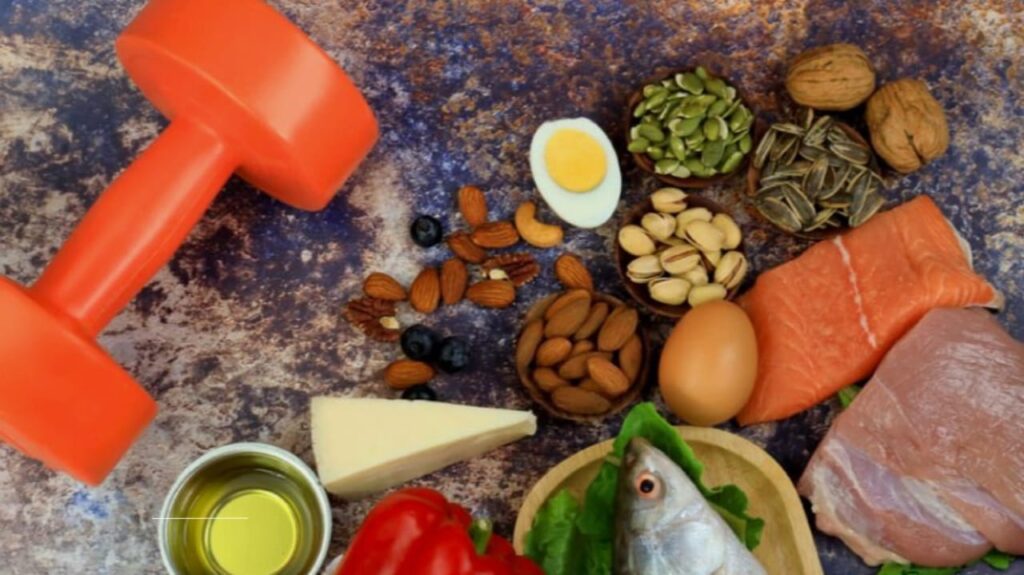
Building muscle isn’t just about lifting weights—it’s about fueling your body with the right nutrients. Protein plays a starring role in muscle repair and growth, but not all meals are created equal. Nutritionists emphasize that combining high-quality protein sources with balanced carbs and fats maximizes results. Below, we break down seven expert-approved meals packed with protein, science, and flavor to help you reach your muscle-building goals.
1. Grilled Chicken Breast with Quinoa & Roasted Veggies
Chicken breast is a muscle-building staple, offering roughly 31 grams of protein per 100 grams. Pair it with quinoa, a complete protein containing all nine essential amino acids, and fiber-rich veggies like broccoli or bell peppers. “This meal delivers a perfect balance of protein, complex carbs, and antioxidants,” says Dr. Emily Carter, a sports nutritionist. A 2021 study in the Journal of the International Society of Sports Nutrition found that athletes who consumed 30 grams of protein post-workout experienced 22% greater muscle synthesis. For a quick recipe, marinate chicken in olive oil, garlic, and lemon, grill until tender, and serve with quinoa and roasted veggies.
2. Salmon & Sweet Potato Bowl
Salmon isn’t just rich in protein (22 grams per 100 grams)—it’s loaded with omega-3s, which reduce inflammation and support recovery. Combine grilled salmon with mashed sweet potato (a slow-digesting carb) and steamed spinach for iron and magnesium. “Omega-3s enhance protein utilization, making this meal a recovery powerhouse,” notes chef and nutritionist Mark Wilson. A 2017 meta-analysis in Nutrients linked omega-3 intake to improved muscle mass in older adults, highlighting its broad benefits.
3. Lentil & Chickpea Curry
Plant-based eaters, rejoice! Lentils and chickpeas provide 18 and 15 grams of protein per cup, respectively, alongside fiber for sustained energy. Simmer them in a coconut milk-based curry with turmeric (a natural anti-inflammatory) and serve over brown rice. “Plant proteins can be as effective as animal proteins when combined strategically,” says dietitian Sarah Kim. A 2019 American Journal of Clinical Nutrition study found that blending legumes with grains creates a complete amino acid profile, ideal for muscle repair.
4. Greek Yogurt Parfait with Berries & Nuts
Greek yogurt packs 20 grams of protein per cup, plus probiotics for gut health. Layer it with blueberries (rich in antioxidants) and almonds (healthy fats) for a quick, nutrient-dense snack. “Casein, the protein in yogurt, digests slowly, providing steady amino acids overnight,” explains fitness coach Lisa Tran. Research in Medicine & Science in Sports & Exercise shows that casein before bed boosts muscle recovery by 30% compared to fasting.
5. Turkey & Avocado Wrap
Lean turkey (25 grams of protein per 100 grams) pairs with avocado’s healthy fats in a whole-grain wrap. Add spinach and hummus for extra fiber and flavor. “Turkey is rich in leucine, an amino acid that triggers muscle growth,” says Dr. Alan Roberts. A 2020 study in Cell Reports found that leucine increases muscle protein synthesis by up to 50% when consumed post-exercise.
6. Egg & Veggie Omelette
Eggs are a gold standard, offering 6 grams of protein each and all nine essential amino acids. Whip up an omelette with mushrooms, tomatoes, and cheese for added calcium. “Egg protein is 95% digestible, making it one of the most efficient sources,” says Dr. Rachel Lee. Per a 2022 review in Nutrients, individuals consuming eggs post-workout gained 10% more muscle mass over 12 weeks than those relying solely on plant proteins.
7. Protein-Packed Beef Chili
Lean ground beef (26 grams of protein per 100 grams) shines in a hearty chili with kidney beans, tomatoes, and spices. Beans add fiber and extra protein, while tomatoes supply vitamin C for collagen synthesis. “Zinc in beef supports testosterone production, crucial for muscle growth,” explains nutritionist Jake Miller. A Biological Trace Element Research study found that athletes with adequate zinc levels had 15% greater strength gains.
Final Thoughts
These meals aren’t just about protein—they’re about strategic combinations that enhance absorption, recovery, and growth. Consistency is key: aim for 1.6–2.2 grams of protein per kilogram of body weight daily, as recommended by the International Society of Sports Nutrition. Pair your diet with resistance training, and track progress to adjust portions as needed. Remember, building muscle is a marathon, not a sprint. With these expert-backed meals, you’ll fuel your body for sustainable gains.
